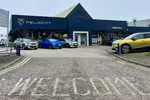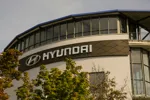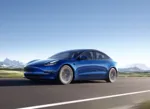Despite a stagnant European mainland market, and with the German market continuing to falter, VW Group chairman Pischetsrieder says he will not, and has not, pressured VW UK to absorb surplus capacity, and he berates any manufacturer that does take this approach.
“It would be disastrous to try to get rid of cars in this way,” he says. “It is putting profit forward but then these cars will come back into the market. You can’t make it work.”
His comments follow complaints by some VW retailers in the UK over incentivised sales, in particular for the September plate change when some paid outright for around 3,000 cars with discounts of up to 30%.
There have also been suggestions that the company is gearing up for a big campaign in the fourth quarter, although UK boss Paul Willis has told AM that Volkswagen balances sales targets and brand protection well compared to its premium rivals.
In a swipe at European legislators, Pischetsrieder adds: “It is difficult to sell cars on the continent and it is even more difficult to keep Brussels under control, and that’s having a long term effect on the industry.”
Legislation affecting safety design, new fuel technologies and carbon dioxide emissions are costing carmakers billions of pounds as they develop vehicles to meet different regulations in different markets. Pischetsrieder calls for technical harmonisation within Europe and outside.
“We are facing a big challenge to maintain our technical leadership and competitiveness on quality and price,” he adds.
Pischetsrieder believes the consumer will decide whether hybrid is the future. He points to the high development costs and suggests instead that renewable fuels like biofuels could be the answer.
VW is working on this technology. “This will reduce net CO2 emissions across the range and the investment is a fraction of the cost . We have to discuss this with the European Commission,” he says.















Login to comment
Comments
No comments have been made yet.